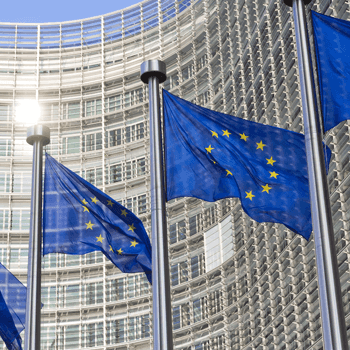

On 10 April, the European Commission organized the 2018 Digital Day, during which 25 European government representatives signed up to a Declaration on Artificial Intelligence (AI), committing to collaborating and taking the necessary policy measures to take full advantage of this technology.
The Declaration aims to provide a roadmap for the collaboration between Member States to increase the uptake of AI in Europe, such as securing research, development and innovation funding or encouraging cross-border data sharing, while also guaranteeing citizens’ trust in the technology.
The signing of the AI declaration took place only shortly before the expected publication of the European Commission’s Strategy on Artificial Intelligence on 25 April. It is anticipated that this strategy will also focus on securing funding for research and development in AI, as well as looking into legal and ethical issues, and labor market implications. When it comes to possible regulation the Commission is expected to propose a light-handed approach.
Health care is seen as a sector that would greatly benefit from artificial intelligence, and is likely to be one of the key focus areas of this strategy.
AI represents a world of opportunities for the health care sector
It is estimated that AI could help European health care systems save €172bn by improving prevention, diagnostics and treatment of childhood obesity, dementia and breast cancer. Beyond the pure economic benefits, artificial intelligence opens up great opportunities to develop new drugs and move towards highly personalized medicine. All to the benefit of patients and health care systems alike.
The health care sector is rich with data. This is perhaps the greatest asset that health care companies and EU Member States have in order to develop powerful health care AI-based solutions. Indeed, artificial intelligence relies on machine learning and related algorithms. The more (high-quality) data you can feed to an algorithm, the better it will perform.
Cross-border access to public-sector data is happening. But what about privately-held data?
The need to access large amounts of data to develop AI has been fully understood by European policy-makers, who, in the AI Declaration clearly state the need to make more public-sector data available. This call is very similar to the one recently made by French President Emmanuel Macron, when he launched the French AI Strategy. Macron announced that the French government would “open” the data it has collected over the years to support the development of AI research in France, but also in Europe.
Here, it gets interesting for health care companies: as a highly centralized country, France now holds on to health care-related data that was collected over decades (including clinical trials or social security-related data). Yet, as it intends to allow access to public data, the French government also wants private companies to participate in this “data-pooling” effort, and strongly encourages them to share the data they own with one another. It remains to be seen how health care companies will feel about that. Yet, Europe-based health care companies should start bracing themselves, as AI is now a priority of European leaders, who will push hard for data sharing to also happen between private actors.
EU leaders look to Brussels as they see the clear European added-value for artificial intelligence. Estonia, Europe’s digital champion, was the first government to prominently place the topic of AI on the European political agenda, during their presidency of the Council in the second half of 2017. Bulgaria, who holds the Presidency of the Council since January, has also been pushing the AI agenda at EU level. Belgium, the Netherlands, Ireland, the UK and the Nordics countries are also famous supporters of a European AI Strategy. Last but not least, Germany’s Research Minister Anja Karliczek, when invited to speak in Paris on 29 March, pleaded for the German-French dynamic duo to “pool their expertise at the European level”.
Can AI lead to a hyper-personalized medicine?
Cross-border data access will contribute to accelerating scientific breakthroughs in health care. For instance, in the area of rare diseases, having the possibility to analyze data from 28 Member States covering 500 million people will provide sufficient scale and a larger enough cohort for any new meaningful clinical research and encourage research and development from the private sector to lead to the development of new drugs.
On Digital Day, 13 Member States also signed a Declaration of cooperation to deliver cross-border access to their genomic information. This Declaration has been described as a “game changer” by the European Commission: thanks to this genome sequencing data, artificial intelligence can help predict an individual’s probability of developing certain diseases (including cancer, dementia and diabetes) and help prevent them.
In the future, health care companies count on artificial intelligence to help them progress in the field of “pharmacogenomics”, where genomic information is used to develop population or even patient-specific pharmaceutical drugs. It is expected that AI will be able to predict the way patients will react to a certain drug, and will be instrumental in supporting doctors making the optimal drug selection and dosing. Overall, it is expected that AI will provide enormous return on investment to the benefit of patients and support more sustainable health systems.
What role for the European Union?
Health care is a key sector for the development of artificial intelligence, but also one of the sectors that is benefiting and will continue to benefit from the innovations that AI will bring. The fact that the European Union is looking very closely at this technology is a clear indication that Europe wants to play an important role in this regard to be able to compete with other players in this area, mainly the United States and China. A legal framework in which transparency and accountability will be cornerstones to make sure AI benefits everyone will help drive this ambition.
APCO alumnus Mathilde Bouvier co-authored this piece.

